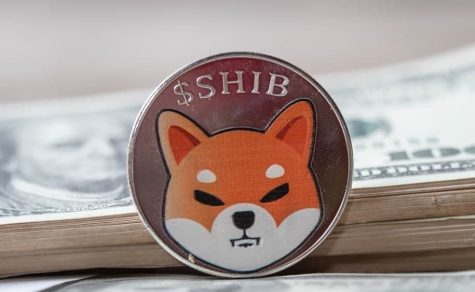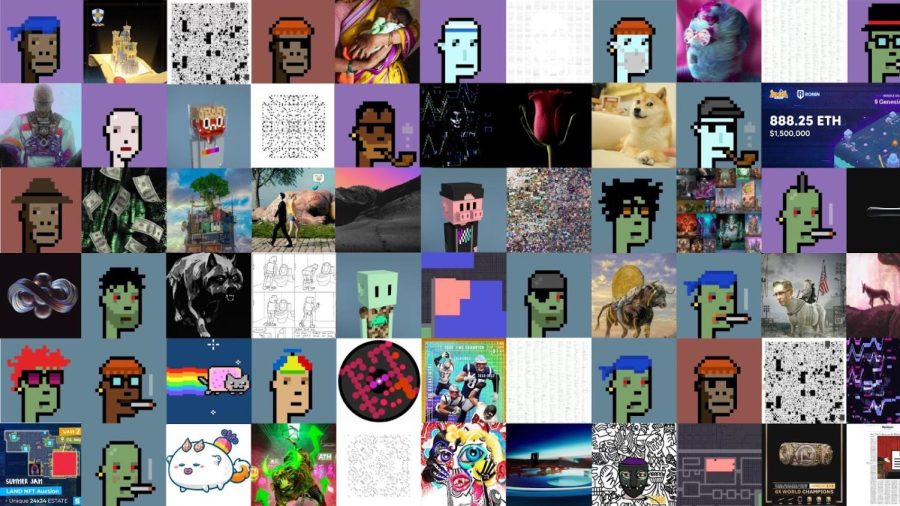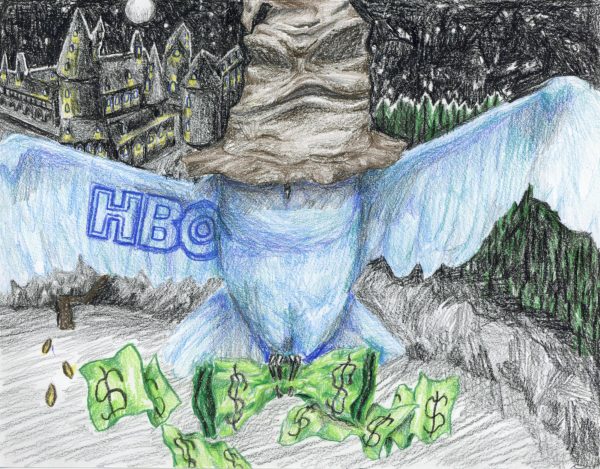NFTs: A joke for the rich, or an investment worth making?
An NFT, or non-fungible token, is a digital asset that cannot be traded or divided into smaller parts. In other words, fungible, or interchangeable, tokens like Bitcoin can be traded, and non-fungible tokens have a certificate of ownership that can be sold. Only one person owns the whole deed, which is usually a photo, video or audio clip. Surprisingly, it’s quite easy to get started investing in NFTs; in fact, NFTs are one of the most affordable ways to invest money nowadays. Ranging from a few cents to millions of dollars, NFTs accommodate the price range of almost any investor.
NFTs have taken the world by storm, and many want in on the action. However, others are shocked by this surge in popularity because what’s the point in buying an NFT when one can simply screenshot? Well, the same question can be asked for any collectible item. Why do people buy original pieces of art instead of identical replicas for cheaper? Who cares about a 100 year old coin when you can get a new one at the bank? Why doesn’t my little brother print out Pokemon cards instead of pestering my parents to purchase them? It’s because of how important the concept of ownership is in today’s society. This idea can be traced back to 17th century European trading companies, which took over colonies worldwide and spread the idea of private property. And to this day, people’s obsession with possessions causes them to buy into seemingly foolish investments.
Most NFTs are said to be limited-edition, one-of-a-kind — or are they? Unlike other material objects like coin or stamp collecting, NFTs never get damaged or suffer from old age. While some see this as a positive because customers can buy something that stays in pristine condition forever, others detect a huge problem as digital storage doesn’t allow for NFT scarcity. Yes, every NFT is unique, but in a world where the possibilities of what can be made into an NFT are endless, the amount of artwork flooding the market may cause NFTs to go down in value. To put it simply, NFTs are short term investments; no one knows how long the hype will last. Just like how the Shiba Inu meme coin is an unreliable and unstable investment, NFTs are not worth it unless you genuinely like the art. Also, unlike other forms of investing such as the stock market or real estate, NFTs haven’t been around long enough for people to notice trends. This is problematic as good investments usually involve studying the history of whatever you’re planning to invest in. A smarter way to invest money is thinking long term, and investing in something that will rise in value consistently over long periods of time, two things that are very uncertain in the NFT market.

So what are NFTs good for? Two things: tax evasion and money laundering. Similarly to modern art, a wealthy person may decide to purchase an NFT to avoid paying taxes, as it can hide income from the IRS under the right conditions. No one smart enough to become a millionaire seriously thinks that a bunch of pixels on a screen are worth their money. After all there’s nothing preventing others from copying and pasting any type of digital information.
Now, for money laundering. Let’s say someone illegally obtained a large sum of money and wanted to deposit it in their bank account. When the bank asks where they got the money, what will they say? That’s where NFTs come into play. By producing and then buying their own NFT for millions, anyone can quickly and efficiently make large amounts of “dirty” cash “clean.” In 2022, investors should be aware that governments could crack down on NFTs and install regulations to prevent money laundering and tax evasion schemes.
Although NFTs seem highly suspicious, there are people that profit big time. This whole NFT craze has made those who own and run the blockchain networks millionaires. Blockchain networks are a secure place where records are kept of transactions and ownership of NFTs. The technology used to encrypt NFTs requires a lot of electricity to store as a unit of data. NFTs also have identification codes to prevent hacking, verify the ownership status and keep track of any transactions made. Due to the cost of electricity and space they take up in the digital world, creating an NFT could cost up to $500.
Despite their appearance as a “get rich quick” scheme, the chances of someone actually becoming wealthy off of NFTs are slim. Not impossible, but don’t buy an NFT in hopes of becoming a millionaire. Nothing in this world comes without its fair share of hard work, and taking shortcuts to success is a good way to lose your money.






